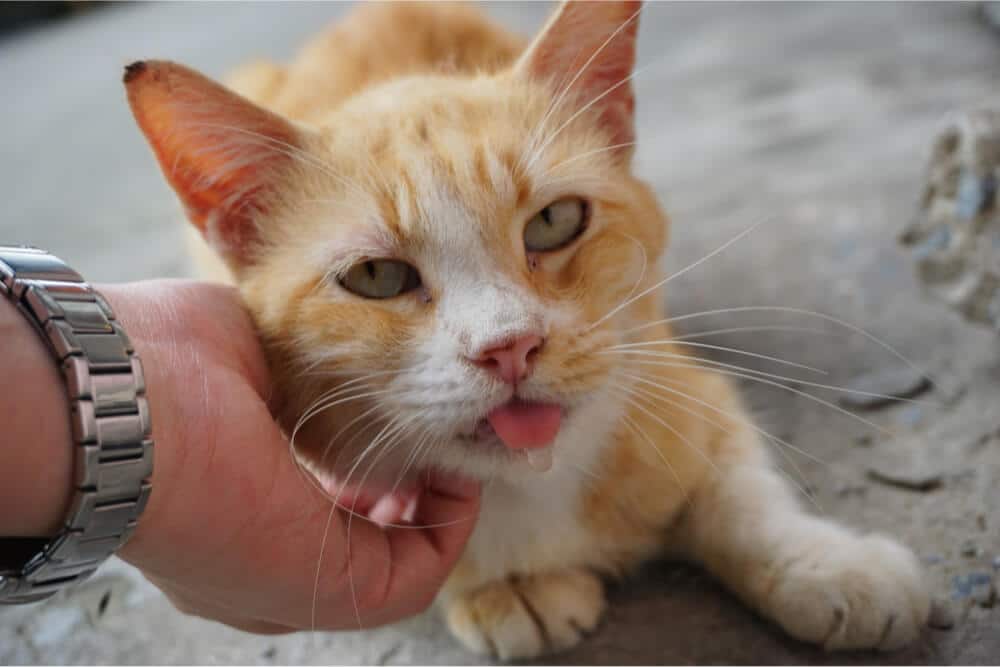
Quick Overview: Cat Drooling







If your cat is drooling, you might wonder if it’s normal or something to be concerned about.
While a small amount of drooling can be normal in some cats when relaxed, it usually indicates a problem that needs medical attention. This is especially true if you’ve never noticed your cat drooling in the past.
Drooling can be caused by multiple causes in cats, such as oral and dental conditions, nausea and some toxins. If your cat has started drooling, always seek advice from a veterinarian.
What Causes Drooling?
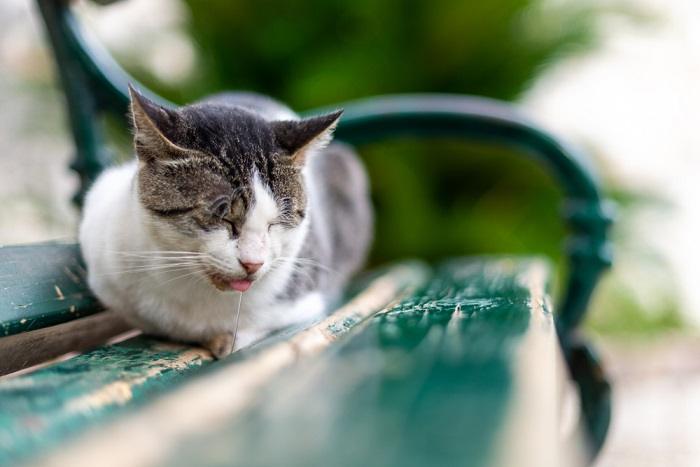
The most common causes of drooling in cats are health conditions causing oral pain.
There are many conditions that might cause drooling (also called hypersalivation or ptyalism) in cats.
Dental Disease
Drooling in cats is most often a sign of mouth pain. If it’s painful for a cat to close her mouth or swallow, saliva will end up leaking out of her mouth, resulting in drooling.
Oral or mouth pain can come from many sources. The most common problem is dental disease. Tooth and gum disease in cats can be painful, but can be difficult to spot. Common dental problems in cats include gum disease, resorptive tooth disease (where teeth lose their enamel coating), tooth root abscesses and broken teeth.
Other Sources of Oral Pain
Dental disease is not the only problem that causes a painful mouth. Oral tumors and abscesses can also cause pain and excessive drooling. There may also be a bad smell from the mouth (halitosis).
Less common causes of mouth pain can include:
- Irritation such as burns from chewing electrical cords, grooming something off their fur, or eating some plants which cause oral irritation
- Something is stuck in their mouth
- Some viral diseases and severe kidney disease can cause ulcers in the mouth which are painful and cause drooling
If your cat is drooling due to dental disease or other sources of a painful mouth, you may see some additional symptoms, such as:
- Bad breath (halitosis)
- Decreased appetite
- Reluctance to eat hard food
- Food falls from the mouth while eating
- Weight loss
- Mouth hanging open
- Thick, discolored or bloody saliva
- Poor grooming
If your cat is drooling and not eating, seek veterinary attention urgently.
Nausea
A less common cause of drooling in cats is nausea. Many health conditions can cause nausea, such as gastrointestinal upsets, kidney disease and liver disease.
Motion sickness (car sickness) in cats is another potential source of nausea and drooling.
Poisoning
There are various toxic substances that can cause cats to drool. These include chemicals such as household cleaning products. Exposure to pesticides, in particular one called permethrin found in some flea/tick medications only for dogs, can cause severe drooling if cats are exposed to them.
Less Common Causes of Drooling
There are some other health conditions which may cause drooling in cats, although less commonly seen.
- Problems with nerve function to the mouth and throat
- Rabies
- Bitter tastes, such as with some medications
When to Call the Vet
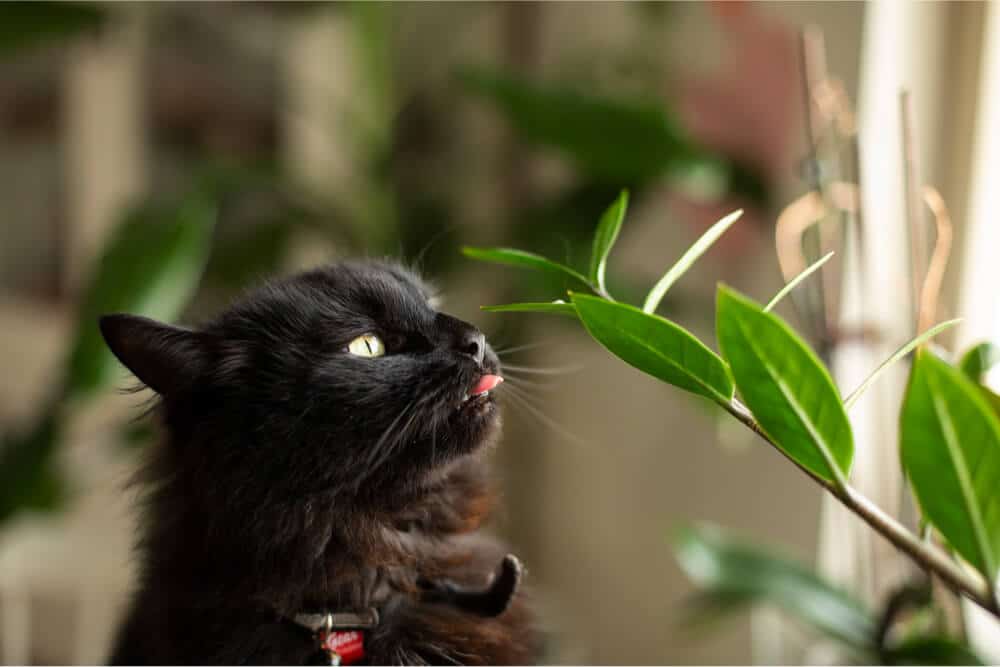
Unless your cat is a well-known ‘happy drooler’ and is only dribbling a little when being petted, most causes of drooling will need investigation by a veterinarian.
Drooling is sometimes seen in healthy cats. For instance, some cats drool while very relaxed and receiving positive stimulation like petting. The drooling is often accompanied by purring. Sometimes cats may drool and purr while kneading a blanket or other soft material or even when sleeping. The reason for this is largely unknown, but it appears to be behavioral and not a medical problem. If your cat has always been a drooler when relaxed and purring, but seems fine at other times, it’s likely not a problem.
However, in many cases, drooling in cats requires an examination from a DVM veterinarian. Seek help if your cat:
- Has suddenly started drooling
- Is drooling and not eating or grooming
- Has other symptoms such as bad breath, weight loss or blood-tinged saliva
Your vet will check your cat for any weight or muscle loss and do a thorough physical exam, checking all over your cat’s body—especially your cat’s mouth and teeth to try to find the cause of the drooling. The vet might recommend further tests like x-rays, bloodwork, or a sedated oral examination to get to the root of the drooling so it can be treated.
Also Read: 10 Subtle Signs Your Cat May Be Sick
Treating Drooling in Cats
Treatment will depend on what the cause is but could include medications for pain or nausea. It may also include dental care and removal of diseased painful teeth or oral surgery to treat tumors.
Preventing Drooling in Cats
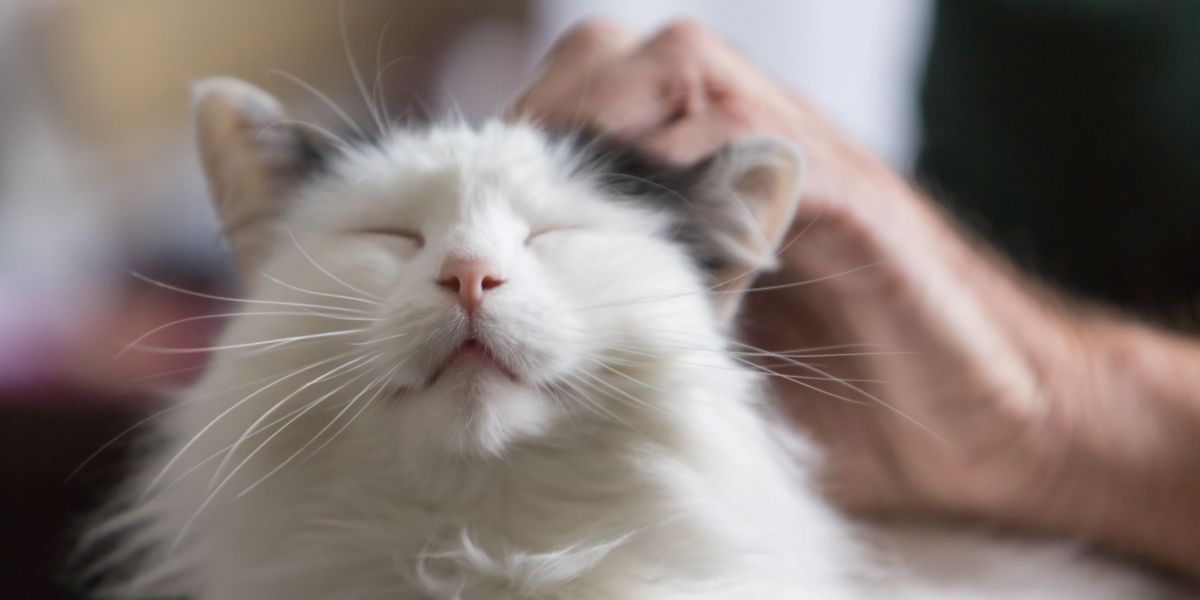
Establishing a good oral care routine is recommended for all cats.
There are some diseases which we can’t prevent, but with a common source of drooling being dental pain, cat owners can focus on good dental hygiene for their pets. Invest in a cat-friendly toothbrush and toothpaste and start a daily hygiene routine for your cat!
Here are some other tips to prevent drooling:
- Accustom cats to car travel gradually
- Keep all medications out of reach of pets
- Make gardens and indoor plants safe by following cat-friendly gardening
Never Ignore a Cat Drooling
It can be normal for some cats to drool a little when they are very relaxed and content. However, if your cat that has never drooled before suddenly starts drooling, do not delay seeking veterinary treatment.
Drooling is most often caused by painful conditions. Drooling means your cat may be in pain. Cats do their best to hide their pain and illness. Once drooling is seen, the problem is often quite advanced and painful.
Frequently Asked Questions
Why would a cat suddenly start drooling?
Injury or disease of the mouth is one of the most common reasons a cat would suddenly start drooling. Tumors, tooth pain, and disease or irritation of the gums cause pain and difficulty swallowing leading to drooling. Other causes for sudden drooling in cats include nausea and exposure to toxic or irritating substances and problems with nerves including Rabies.
Is it normal for cats to drool?
In a very small number of cats, drooling may be normal. Some cats drool slightly when very relaxed and content. Drooling like this is often accompanied by purring. Similarly, some cats may drool a little when sleeping. If the drooling stops outside these isolated episodes, and the cat is otherwise eating normally and acting well, drooling might be considered normal for the cat.
What is drooling a symptom of?
Drooling in cats is most often a symptom of pain (usually mouth pain). Less commonly it can be a symptom of nausea, poisoning, or problems with nerves including Rabies.
How do I get my cat to stop drooling?
Take your cat to a veterinarian to find the cause of the drooling. Once a cause is found your vet will recommend treatments that will address the problem (most often mouth pain) and that will help address the drooling.
Cat saliva dripping from mouth remedies?
Treatment will depend on what the cause is but could include medications for pain or nausea. It may also include dental care and removal of diseased painful teeth or oral surgery to treat tumors.




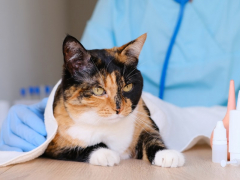
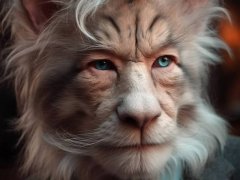
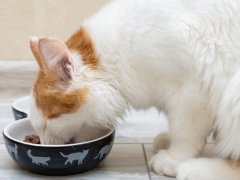
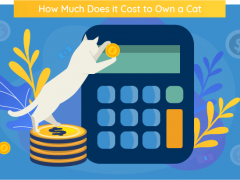
Everytime I let my cats out to play in the yard for a few hours, they come back in and a few hours later, they are drooling. Also, anothter time I saw this is when we had a bad batch of WET CAT FOOD salmon/shrimp. Just an FYI.
THANKS FOR PASSING THAT ALONG….OUTSIDE YOUR CAT WAS LIKELY EATING A PLANT THAT CAUSED IRRITATION ….GIVE YOUR WHISKERED CHILD A HUG FOR ME AND THANK YOU ONCE AGAIN.
What a load of rubbish. I’ve had several cats who drool when they are happy and content.